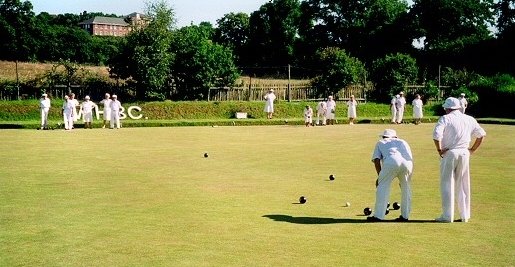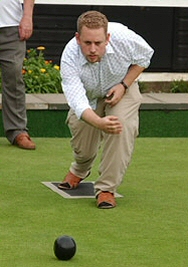sPORT AND LEISURE TIME IN the United Kingdom
'Think of your favourite sport! Whatever it is, there is a good chance that it was first played in Britain, and even a better chance that its modern rules were first codified in Britain.' - James O'Driscoll
Cricket, Football, Rugby, Tennis, Netball, Golf, Horse racing, Polo,
Table tennis, Badminton, University Boat Race, Fishing, Bowls, Darts
2. How do the British spend their leisure time?
3. Why do the British like going to the pub?
Sport is one of the UK’s most popular leisure activities, with two-thirds of all adults taking part in one or more sporting activities. Sadly, this is not true for children and young adults. Of all sporting activities, walking is by far the most popular for men and women of all ages. While men tend to dominate golf and 'cue sports' such as snooker and billiards, women generally prefer swimming, keep-fit classes and yoga. The UK claims to be among the top five most successful nations in world sport. UK sportsmen and sportswomen hold over 50 world titles in a variety of sports, such as professional boxing, modern pentathlon, rowing, snooker, squash and motorcycle sports. The Government’s view is that sport is an important component of regeneration, and can have a beneficial effect in helping the development of run-down areas.
Many of the world's famous sports began in England, including cricket, football, lawn tennis and rugby. It is difficult to identify the national sport of the UK or even that of the constituent countries.
England's national sport is perhaps cricket, although football is definitely Britain's most popular sport. Some of England's football teams are world famous, the most famous being Manchester United, Arsenal, Chelsea and Liverpool.
In Wales - traditionally the Rugby union is regarded to be the national sport, but football is played by more people. However, the Welsh national rugby team attracts the most interest of any Welsh team, especially due to the weakness of Welsh soccer.
Scotland's native sport is Shinty, but football attracts much larger crowds. Scotland was also the birthplace of golf, which is more often associated with Scotland than anywhere else.
|
Shinty, also known as camanachd or iomain, is a team sport played with sticks and a ball. Now played almost exclusively in the Scottish Highlands, but formerly more widespread, the sport was derived from the same root as the Irish game, hurling. Shinty is one of the predecessors of ice hockey.
|
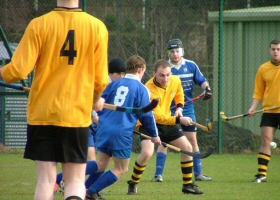 |
A basic form of the sport can be traced back to the 13th century. The game seems to have originated among shepherds and farm workers in Kent. Written evidence exists of a sport known as creag being played by Prince Edward, the son of Edward I (Longshanks), in Kent in 1300.
"Judging by the numbers of people who play it and watch it, cricket is definitely not the national sport of Britain. Its is popular in all classes in England alone, in other parts of the UK interests in it is largely confined to the middle classes. Cricket is more than just a sport. It is special because it combines competition with the British dream of rural life:
slow - games between professional teams can last days
peaceful - no physical contact between the players,
sunny afternoon
smell of new-mown grass: Cricket is what the village green is for" - James O'Driscoll
Cricket is played on village greens on Sundays from
April to August mainly in England. It is popular mainly among the
present and former members of the Commonwealth.
Basic rules are the following: Teams are made up of 11 players each. They play with a ball slightly smaller than a baseball and a bat shaped like a paddle. Two batters stand in front of wickets, set about 20 metres apart. Each wicket consists of three wooden rods pushed into the ground, with two small pieces of wood balanced on top. A member of the opposing team (the bowler) throws the ball towards one of the batters, who must hit the ball so that it does not knock a bail off the wicket. If the batsman hits the ball with his bat, he may run to the other wicket, exchanging places with his partner. This scores a run. While the batting team attempts to score as many runs as it can, members of the bowling team gather the ball and return it to either wicket. If the ball that is thrown by a fielder strikes a wicket while the nearest batsman is still running, the batsman is out, or "dismissed". Batsmen can also be out by other means, such as failing to defend the bowled ball from hitting the wicket. At the end of the match, the winner is the team that has scored the most runs.
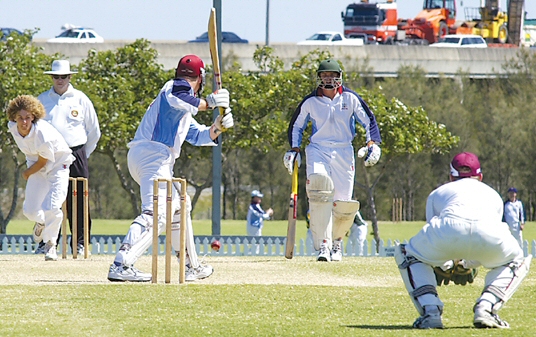
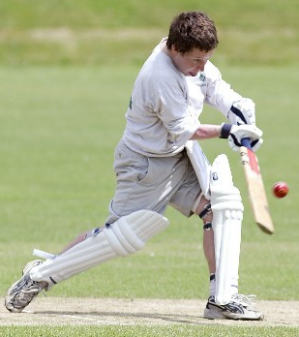
Football (Soccer)
The earliest evidence that games resembling
football were being played at English public schools - attended by boys from the
upper, upper-middle and professional classes - comes from the Vulgaria by
William Horman in 1519.
Football is undoubtedly the most popular sport in
Britain.
Association football is controlled by separate football associations in England, Wales, Scotland and Northern Ireland. There around 50.000 registered clubs in the UK most of which are non- or semi-professional. It means that most players have other full-time jobs. Hundreds of thousands of people also play football in parks and playgrounds just for fun. Football is popular among spectators, and around 40 million spectators attended the main English and Scottish League matches a year. The highlight of the English football year is the FA (Football Association) Cup Final each May.
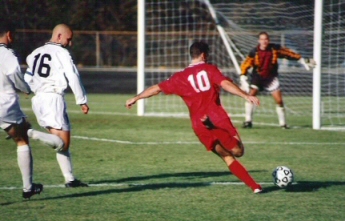
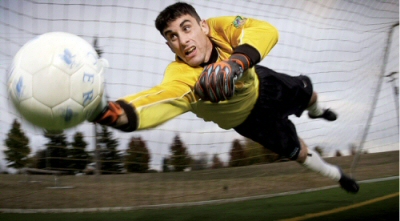
Rugby
Rugby
football refers to sports descended from a common form of football
developed at Rugby School, Warwickshire. The two major sports are rugby league and rugby
union (the size of the playing field and the number of
players are different). Rugby League,
played mainly in the north of England, and Rugby Union, played in the rest
of England, Scotland, Wales and Ireland.
American football also originated from Rugby football. It is similar to
football, but played with an oval ball. Players can carry the ball and
tackle each other (see below). The best rugby teams compete in the Super League final
each September. For many years Rugby was only played by the
rich upper classes, but now it is popular all over the country. England, Scotland, Wales and Ireland, together with France
and Italy, play in an annual tournament called the Six Nations. In the UK there are 30 professional clubs, with about 2,000 professional
players, and some 400 amateur clubs with a total of around 40,000 players.
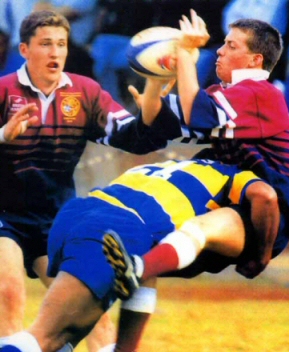
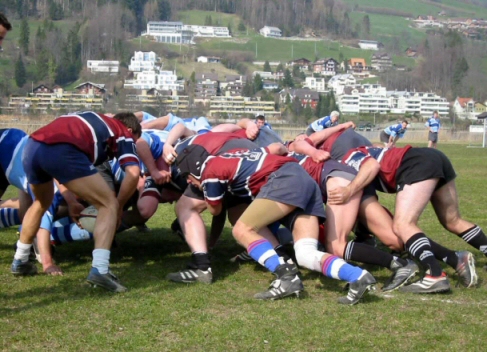
Tennis
Wimbledon is the oldest of all the
major tennis tournaments beginning in 1877 (Some
20 players (all men) paid the entrance fee of one guinea (252 pennies) to enter). The rewards of prize money began in 1968 when the total
sum
was £26,150; today it is over £1,500,000. It begins on the nearest Monday
to June 22, at a time when England enjoys the finest weather. The Centre Court
(on the picture)
has a capacity for over 13,000 spectators. Millions of people watch the
Championships on TV live. It is traditional for visitors to eat
strawberries and cream while they watch the games.
During Wimbledon fortnight over 23 tons of
strawberries and 285,000 cups of tea are consumed!
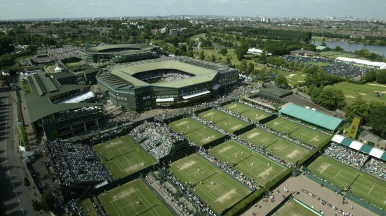
Netball
Netball
is a team sport similar to basketball.
Netball is the largest female team sport in England. More than 60,000 adults play netball
regularly in England alone and a further 1 million young people play it in
schools. The sport is played almost exclusively by women and girls,
although male participation has increased in recent years.
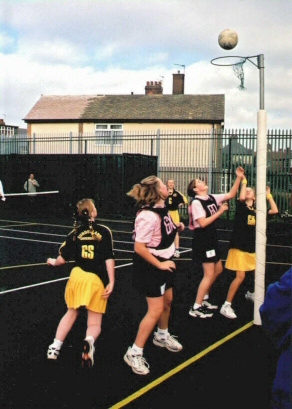
Golf
![]()
It
is generally accepted that golf was invented in Scotland... or at least
Scotland is traditionally
regarded as the home of golf. The oldest
course in the world is The Old Links at Musselburgh. Golf, in essentially the form we know it today, has been played on Scotland's Musselburgh Links since 1672, and earlier versions of the game had been played in the British Isles and the low-countries of Northern Europe for several centuries before that. Although often viewed as an elite pastime, golf is an increasingly popular sport that can be played for one's entire life. There are over 400
golf courses in Scotland alone. The most important golf club in Scotland
is in the seaside town of St. Andrews, near Dundee.
It is quite difficult to hit the ball and not the ground (see left)
Golf courses somehow tend to be located at beautiful places (see right)
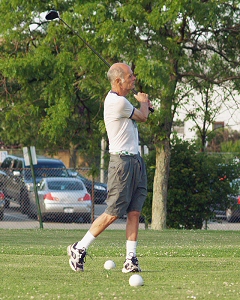
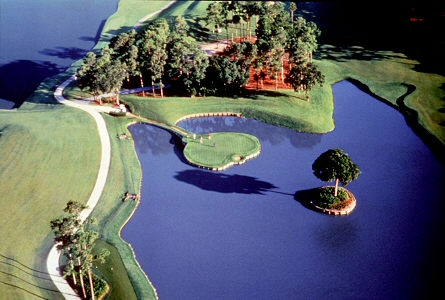
Horse racing
Horseracing, the sport of
Kings is a very popular sport with meetings being held every
day throughout the year. The Derby originated here, as did The Grand
National which is the hardest horse race in the world. Horse racing and greyhound racing are popular spectator
sports. People can place bets on the races at legal betting
shops. Some of the best-known horse races are held at Ascot, Newmarket,
Goodwood and Epsom. Ascot, a
small town in the south of England, becomes the centre of horse-racing
world for one week in June. It's called Royal Ascot (see below) because the Queen
always goes to Ascot. She owns many racehorses herself and enjoys watching
the
races.
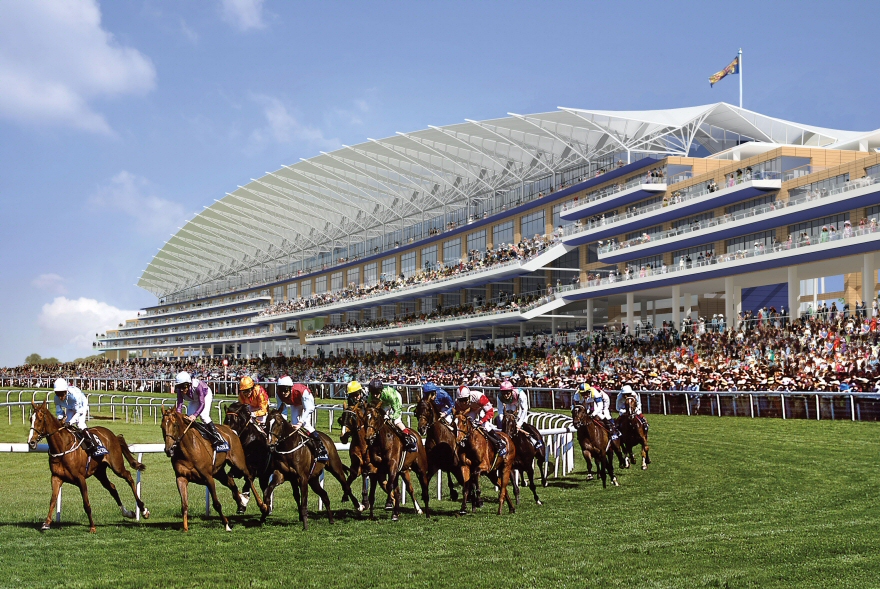
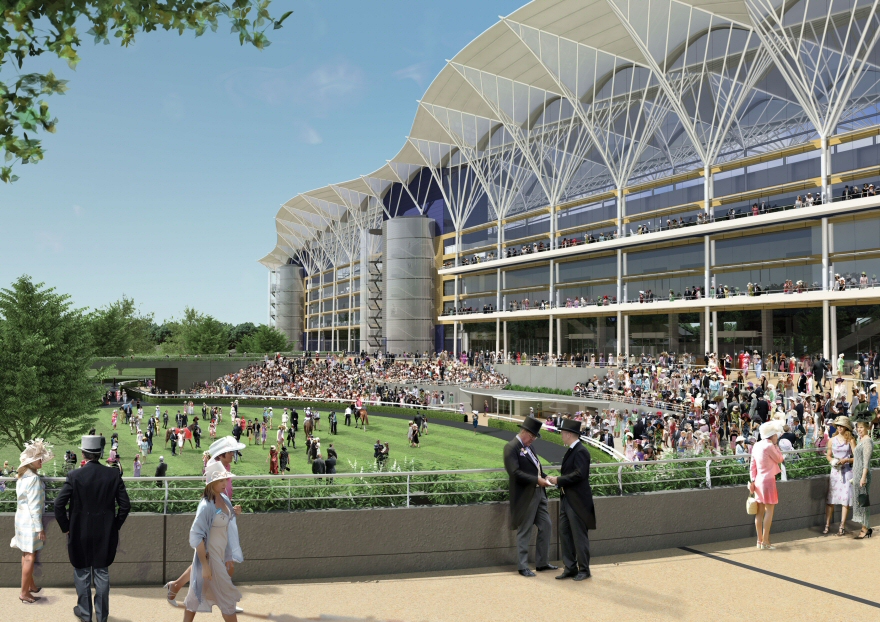
Polo
![]()
Another
equestrian sport is polo, brought to Britain from India in the
19th Century by army officers. It is the fastest ball sport in the world. Polo is
played with four men on horses per team. A ball is hit with a stick
towards the goal, one at each end of a (300 yard long by 160 yard wide)
field...
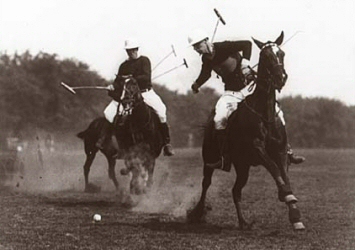

Table Tennis (ping pong)
Table tennis was
(also) invented in England in the 1880s. It began with Cambridge
University students using cigar boxes and champagne corks. Although
the game originated in England, British players don't have much luck in
international championships.
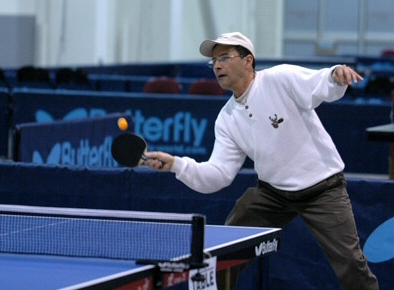
Badminton takes its name from the Duke of Beaufort’s country home, Badminton House, where the sport was first played in the 19th century. The game is organised by the Badminton Association of England and the Scottish, Welsh and Irish (Ulster branch) Badminton Unions. Around 2 million people play badminton regularly.
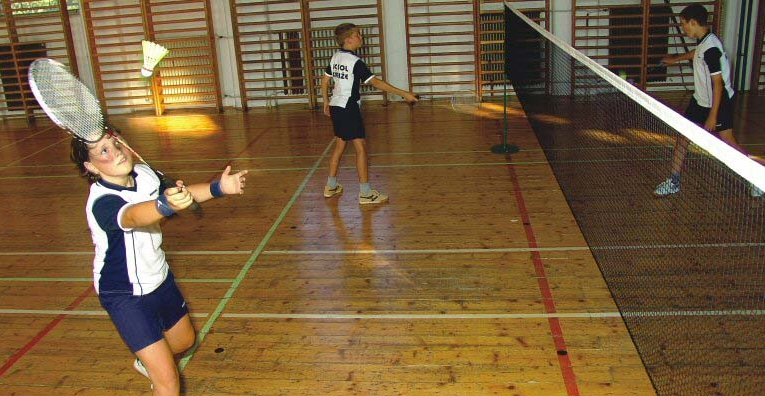
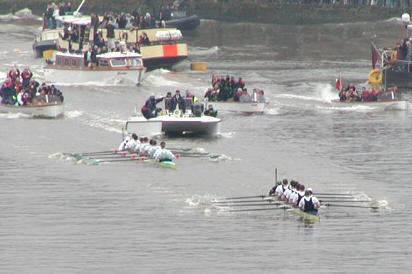 "I can't see who's in the lead but it's either Oxford
or Cambridge." - John Snagge (BBC radio commentator).
"I can't see who's in the lead but it's either Oxford
or Cambridge." - John Snagge (BBC radio commentator).
In
the nineteenth century, students at Oxford and Cambridge, Britain's two
oldest universities, were huge fans of rowing. In 1829, the two schools
agreed to hold a race against each other for the first time on the Thames
River. The Oxford boat won and a tradition was born. Today, the University
Boat Race is held every spring in either late March or early April.
Overall results:
Cambridge: 78 wins; Oxford: 73 wins; Ties: 1
Fishing (Angling)
Angling is one of
the most popular 'sports' in the UK, with an
estimated 3.3 million people participating in the sport on a regular
basis. Fishermen can be see sitting beside rivers and lakes. In England
and Wales the most widely practised form of angling is for (1) coarse fish
(freshwater fish other than salmon or trout). The rivers and lochs of
Scotland, Wales and Northern Ireland are the main areas for (2) salmon and
trout fishing. Separate organisations represent game, coarse and (3) sea
fishing clubs in England, Wales, Scotland and Northern Ireland, and there
are separate competitions in each of the three disciplines.

|
Certainly the most famous story (or legend) in lawn bowls is with Sir Frances Drake and the Spanish Armada. On July 18, 1588, Drake was involved in a game at Plymouth Hoe when he was notified that the Spanish Armada was approaching. His unforgettable response was: 'We still have time to finish the game and to thrash the Spaniards, too.' He then went on to finish his match and the British Navy soundly defeated the Armada. |
The English game of bowls dates from the 13th century. The Southampton Bowling Club was founded in 1299 and continues to this day. The two main forms of bowls are outdoor and indoor. Lawn Bowls (outdoor bowls) is usually played straight up and down a lawn. In "Singles", each player has four bowls called "woods" which are rolled alternately at a target ball called a Jack. About 6,000 outdoor lawn bowling clubs are affiliated with the English, Scottish, Welsh and Irish Bowling Associations.
Darts
Darts
is a very popular pub game.
The game of darts, as it is
today, was invented in the north of England in a town called Grimsby. However, the origins of the game date back to at least the Middle
Ages.

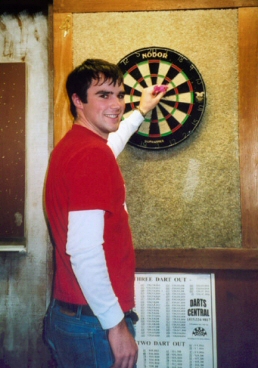
Betting
Betting on team sports has become an important
service industry in the UK. Millions of Britons play the football pools (![]() TOTÓ) every week.
Over 40% of adults in Great Britain
participated in one or more of the National Lottery games every week in 2002.
TOTÓ) every week.
Over 40% of adults in Great Britain
participated in one or more of the National Lottery games every week in 2002.
How do the British spend their leisure time?
|
Homes and Gardens |
A recent Eurostat survey, the EU's statistical office, discovered
that people in Britain spend about 45% of their free time watching
television, 24% of their free time socializing, 22-23% on sport and
hobbies, and 10% on other activities.Other popular leisure activities are
listening to the radio, listening to pre-recorded music, reading, DIY (Do
It Yourself),
gardening, eating out and going to the cinema.
Watching television and videos, and listening to the radio
are by far the most popular leisure pastimes, with an average of 20 hours a week
devoted to these.
The most common free-time activity outside the home amongst adults is a visit to
the pub. Other popular leisure activities include visits to the theatre or
cinema. Of all sporting activities, walking is
by far the most popular for men and women of all ages. While men tend to
dominate golf and cue sports such as snooker and billiards, women generally
prefer swimming, keep-fit classes and yoga.
Why do the British like going to the pub?
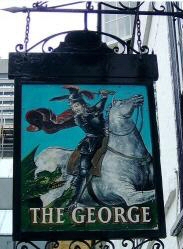 One of the main attractions of the pub
for all regular pubgoers is that it offers good company in friendly
surroundings. Where else can you appear as a complete stranger and at once be
able to join in a conversation with a diverse group of people? Often the style
of the pub and its locality will define the kind of people you can expect to
find there. Village pubs with their country furnishings and real ales attract
not only locals but citydwellers out for a drive, hikers from a long
day’s walk and pensioners enjoying a pub lunch. City pubs tend to have a more
mixed clientele - businessmen and women discussing the latest deal, theatregoers
or groups of friends enjoying a drink together before going off to a restaurant
or nightclub.
One of the main attractions of the pub
for all regular pubgoers is that it offers good company in friendly
surroundings. Where else can you appear as a complete stranger and at once be
able to join in a conversation with a diverse group of people? Often the style
of the pub and its locality will define the kind of people you can expect to
find there. Village pubs with their country furnishings and real ales attract
not only locals but citydwellers out for a drive, hikers from a long
day’s walk and pensioners enjoying a pub lunch. City pubs tend to have a more
mixed clientele - businessmen and women discussing the latest deal, theatregoers
or groups of friends enjoying a drink together before going off to a restaurant
or nightclub.
Good conversation and good beer are two
essential items provided by the pub. The drinking of beer in a public house is
not compulsory, but as any 'publican' will tell you, beer remains the basis of
the trade. It is said that beer is the perfect drink for the pub - it comes in
large measures (one pint glasses) so that just one drink provides plenty of
conversation time! Many pubs also serve food, from snacks to full meals.
Other attractions offered by city and country pubs alike include a game of darts
and snooker, a game similar to billiards.
The lure of the pub can lie in the variety of pub names; each pub has its own
name, depicted on a painted inn sign hung outside. A pub name can
refer to historical events, landmarks, or animals from heraldry.
|
wicket |
krikettkapu |
| equestrian sport | lovas sport |
sources:
100 Questions Answered; Foreign & Commonwealth Office, London
National Statistics, UK 2002, The Official Yearbook of Great Britain and Northern Ireland
Wikipedia
James O'Driscoll, Britain Oxford University Press 1997
Photo of Horse racing © Royal Ascot 2006
Photo of Oxford-Cambridge Boat Race © BBC.co.uk/oxford 2005
Photo of Anglers © VisitScotland 2003
Photo of Darts © Albatross Pub 2006
Photo of Lawn
Bowls
©
James Masters 2005
![]()
